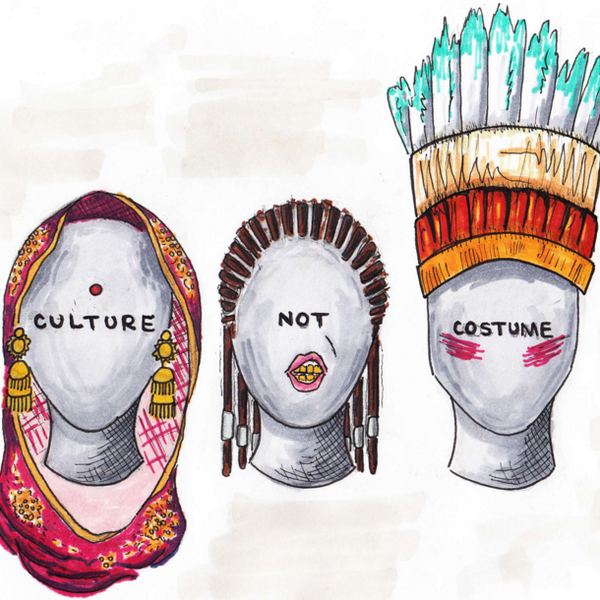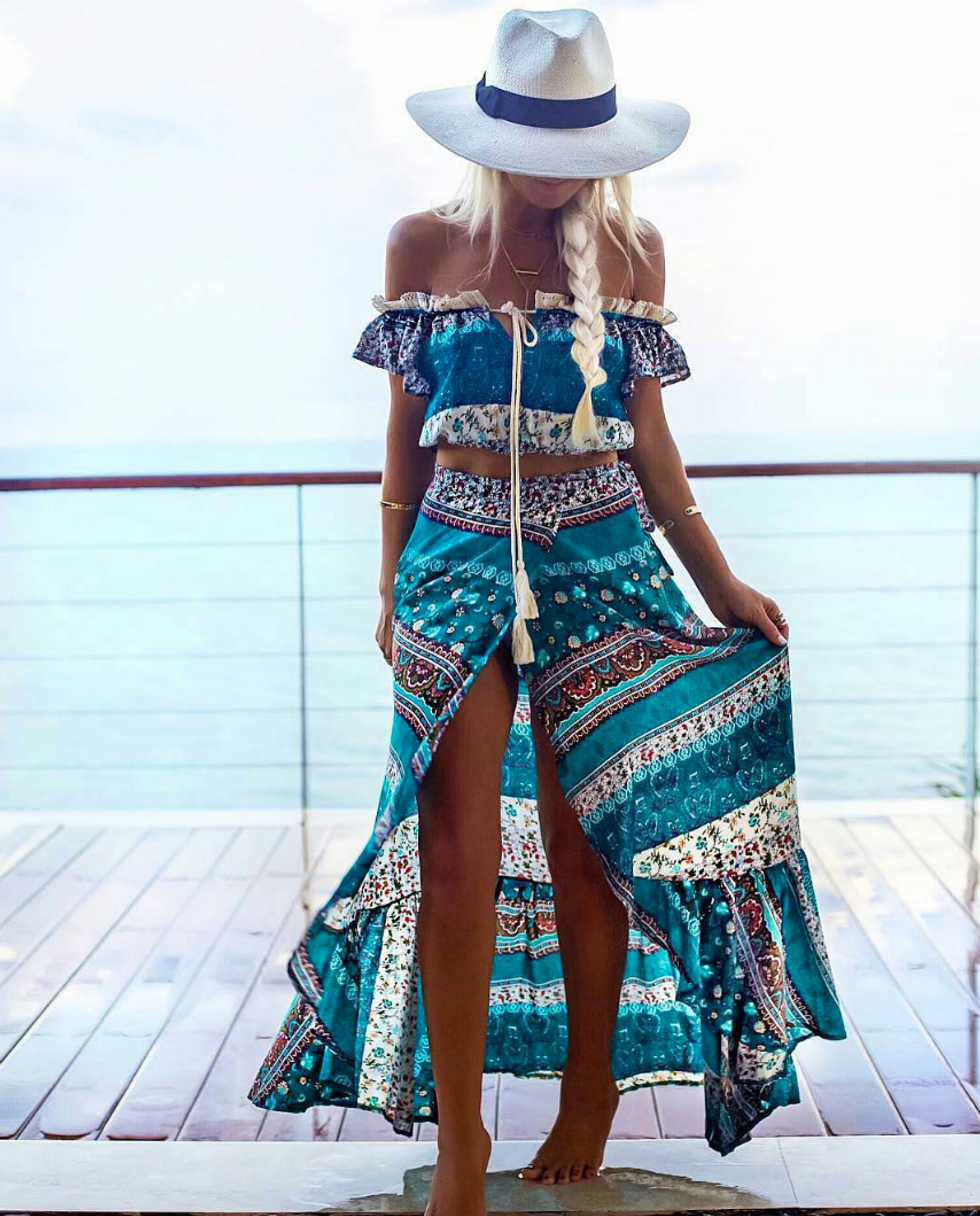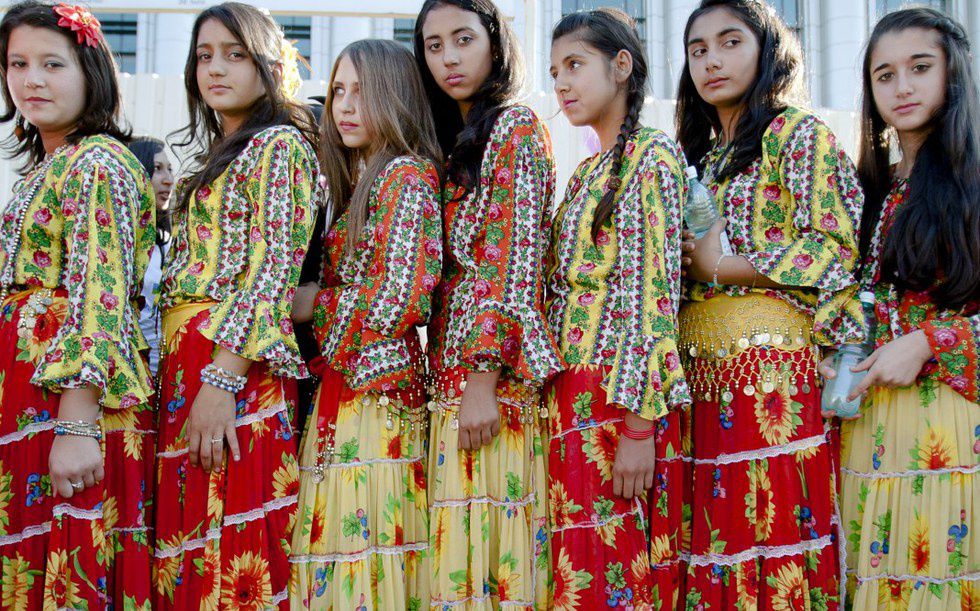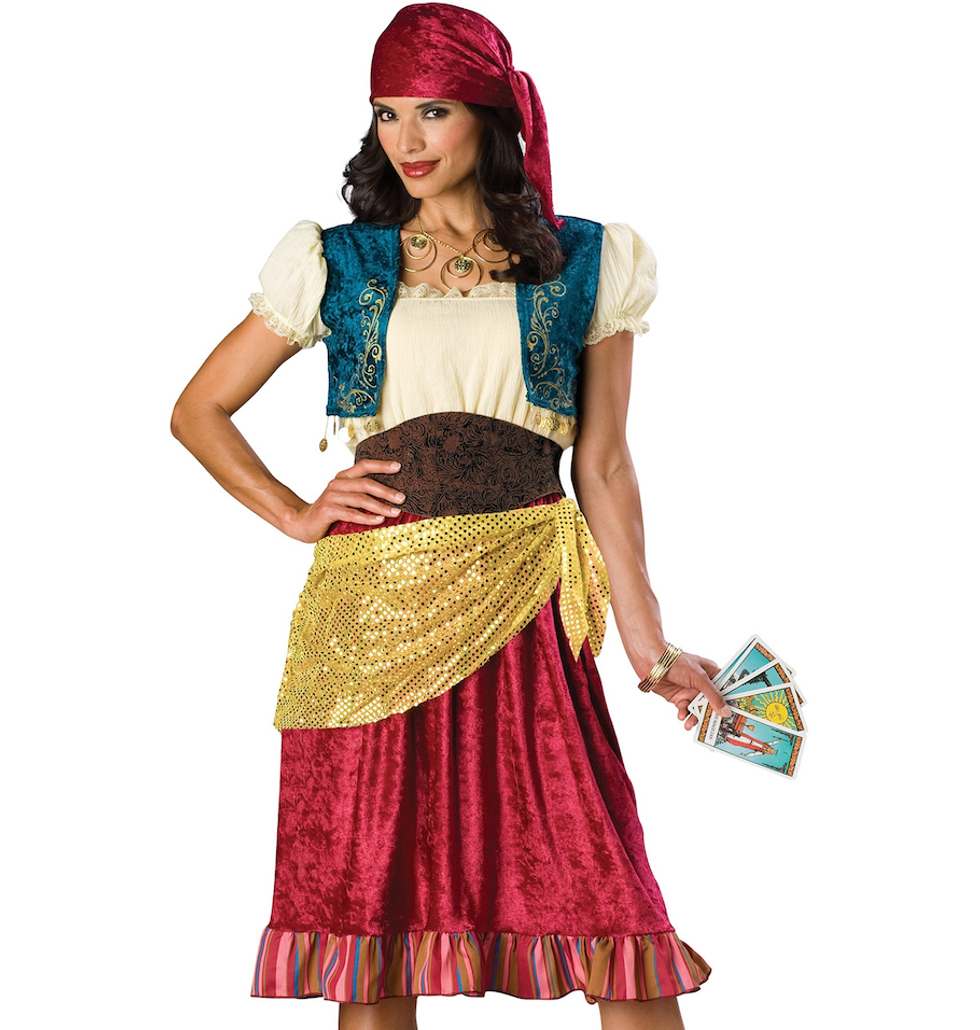Don’t dress as a “gypsy princess” this Halloween. Seriously, don’t.
Dressing up like a “gypsy” is pretty popular right now. Scrolling through trendy Instagram accounts, you can see a number of tutorials and photoshopped images of white women wearing crystals, flowing skirts, crop-tops, and other bohemian attire. Users like hippiegypsystyle on Instagram exemplify this:
The hashtag #gypsy is populated with similar photos. At the time that I write this, that Instagram hashtag is home to more than 3.5 million posts, a number which will have risen at the time that this article is published.
With the coming Halloween festivities, the very first Google suggestion for the word “gypsy” looks like this:
However, amidst all of these pop-culture references to a so-called “gypsy” lifestyle, many people ignore what the word gypsy really is: a slur against a very real, and frequently marginalized, group of people, called the Romani. Now, let's learn some real facts about some real-life "gypsies" are...instead of simply seeing appropriative costumes worn by the ignorant.
The Romani have experienced oppression for centuries in Europe, and the Holocaust seriously decimated their numbers. Estimates of the percentage killed during the Holocaust vary; some say that as much as 70% of the Roma population of Europe fell victim to this genocide. Today, the Roma who remain in Europe experience discrimination in housing, employment, and education– in fact, the European branch of Amnesty International has a thirteen-page web history of human rights abuses against them. Unfortunately, the poor conditions in which the Romani are forced to live contribute to the stereotype that they “want” to live in destitute camps on the margins of society. This is untrue– they do not want to be denied these rights, but they don’t have a choice.
Speaking of stereotypes, you’ve probably heard the term “gypped”, before, which is derived, of course, from “gypsy”. Gypped is a term which essentially means “to be cheated [out of money]”, and references the stereotype that the Roma, known as “gypsies”, are untrustworthy thieves. I have Roma heritage; my grandfather is full-blooded Hungarian Romani. When you say “gypped”, what I really hear is that you are calling my family members cheap, manipulative, and untrustworthy.
Terms like “thief”, “beggar”, and “cheat” have been linked to the Roma for a long time, and continue to color peoples’ perceptions of them to this day. The Roma are identified by their striking and colorful clothing– but this style of dress can also lead to discrimination. However, when others dress up in bastardized versions of traditional Romani attire, they do not need to fear the cruelty and stereotypes that come with being a “gypsy”.
This is what the real Romani people look like.
When you dress up as a “gypsy princess”, you are taking the attractive clothing of an ethnic group while ignoring the oppressions they have faced in the past and are still facing today. In fact, many ignore the existence of the Roma entirely: upon hearing that gypsy is a pejorative against the Roma, they ask me, “Who are the Romani people?” This further illustrates the extent to which people who appropriate Romani culture are completely divorced from the complex and often tragic history behind it.
You can read in full about the struggles that the Romani face (particularly in Europe) in this PDF published by Lancaster University, but here are a few key facts:
- In 2010, the French government took (sometimes violent) action to deport the Roma, and garnered public support for this using violent anti-Roma rhetoric.
- In 2013, the Czech Republic saw 26 different Anti-Roma rallies.
- In the UK, Roma life-expectancy is ten years shorter than non-Roma life expectancy.
- It wasn’t until 2000 that Finland’s constitution formally protected the rights of the Roma to practice their traditional language and culture.
These are just a few points of many. Systemic oppression notwithstanding, the Roma are also frequently subjected to personal prejudices and individual cases of discrimination. To add insult to injury, many people (especially Americans) don’t talk about the oppression of the Roma when they talk about racism. Even in conversations about cultural appropriation, I rarely hear anyone mention the offensiveness of “gypsy” costumes.
When people accessorize with costumes like this:
They reduce centuries of rich culture, marginalization, and survival to a game of dress-up, and reinforce stereotypical and inaccurate images of the Roma as a whole. Quite simply, they ignore the fact that the Roma are real people.
My family, and people like us, deserve better than this. All marginalized cultures deserve to be respected and not appropriated. In a time of year when many important conversations about cultural appropriation and racism are to be had, don’t forget about the Romani.

























